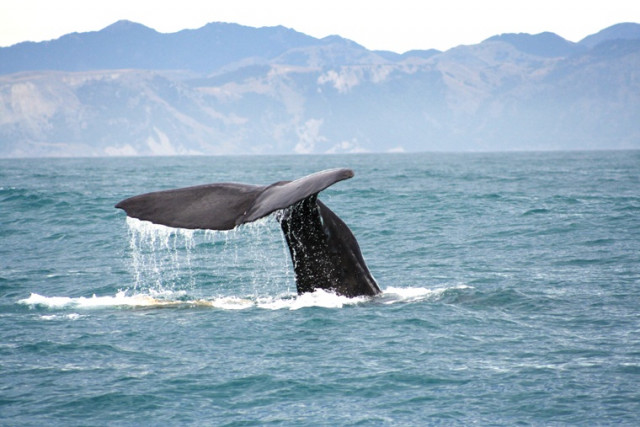Evolution 101: Genetic evidence says cows and whales are related, says doctor
Research claims bananas might go extinct due to a fungi called Fusarium Oxysporum

Dr Hussain was speaking at an event to explain evolution and its scientific authenticity by means of modern research at the launch of the Foundation for Integrated Sciences (FIS). As a part of the launch, a seminar and exhibition titled ‘Small Variations for Big Changes’ and workshop titled ‘Bioinformatics: Tools and Techniques in Modern Research’ were held at the university’s Ojha campus on Friday morning. It was funded by the European society for evolutionary biology and the United States Educational Foundation in Pakistan. The workshop kicked off with a question about evolution.

From the relationship between a cow and a whale, the speakers at the event also discussed 23,000 kinds of genes variations that exist in a human body. They also talked about how bananas may go extinct because of a fungi called Fusarium Oxysporum, which causes the banana crop to go bad.
“On a molecular level, all organisms are the same,” said Dr Abdul Wahab from Karachi University’s microbiology department, while explaining the integration and evolution of species.
He claimed it was important to study how other species had evolved as viruses that affect animals could also affect human such as swine flu. This is why, he added, it was mandatory to research on evolution.
Research topic
The workshop on bioinformatics was held after the seminar. Bioinformatics is an academic field where technology, engineering, mathematics and statistics have to work together to understand biological data. It includes the practical implementation of the tools and techniques used in scientific research. At the workshop, Prof Hussain focused on the study and application of sequence data mining, genome browsers, genetic sequence alignments, evolutionary model selection, phylogenetic reconstruction, phylogenetic analysis, protein modeling, protein structure assessment, protein model validation, molecular docking and structural phylogenomics.

Following the presentations, the participants, including PhD, MPhil students and other medical students interested in evolution and scientific reseearch, tried what they learnt on different computer softwares. The workshop helped the participants understand biology and evolution better by using statistics and mathematical data.

What is the FIS?
The Foundation for Inte-grated Sciences is a platform for young scientists to share their ideas and discoveries. Several universities and colleges, including the.
Federal Urdu University of Arts, Science and Technology, DUHS, Karachi University, Hamdard Medical and Dental College, Abbott Laboratories Pakistan and Aga Khan University Hospital are part of the foundation. They want to raise awareness about science and evolution through online lectures, seminars, workshops, research and outreach programmes.
Published in The Express Tribune, November 8th, 2014.



















COMMENTS
Comments are moderated and generally will be posted if they are on-topic and not abusive.
For more information, please see our Comments FAQ